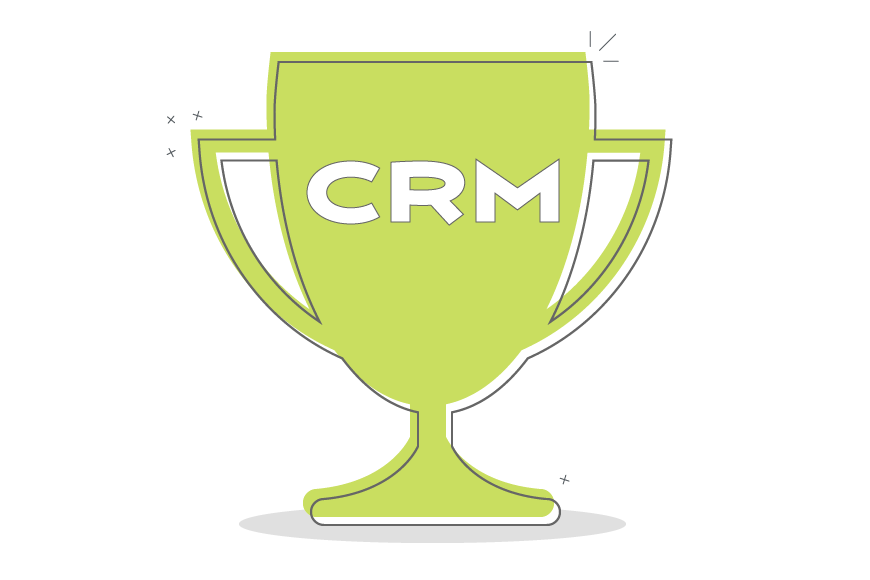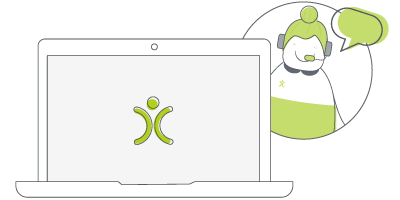Finding the best CRM for your business
18 Mar 2024
The CRM industry is a bit of a jungle. There are so many providers out there. How do you know which CRM system is best for your business?
Of course, I’d always recommend OpenCRM, but in reality, the decision on the best CRM for your team is a very personal one. After all, not every business will need the same thing from their CRM system, so getting the “best” one is all about the one that best fits your business!
So how do you find it?
There are several steps in the process, but the first one starts with recognising what your business needs from its CRM.
Pain Points: what do you need from your CRM?
To find the best CRM system for your business, charity, or other organisation, you need to know what you need. This may seem a bit redundant, but you’d be surprised how many people start looking for a CRM system without making a list of what they need it to do.
Start by identifying your current business processes, so you can make sure that the CRM products you’re looking at will accommodate your needs. It might help to create a ‘sketch’ of your processes, identifying precisely who does what at various stages.
The better you understand exactly where a CRM will fit into your process, the better your chances of finding the best system for you.
After you’ve done that, think about which areas of your process aren’t working as well as they should. Those parts of the process are generally referred to as “pain points.” You might not know exactly how to solve them, but your provider should be able to identify how their CRM can help.
Once you’ve gone through this process, you should now have a general list of your CRM requirements, including:
- What areas of your business processes will need consideration in your CRM
- Who will be using it
- How the flow from one department/person to another should work
- And a wishlist of things you’d like to work better than they do now
This list will probably grow and evolve during your search as you find out more of the fantastic things CRM systems can do for your business.

Do we have what it takes?
We don't restrict which features you have access to in OpenCRM based on how many users you have. You get everything right out of the box. Click to find out if we've got the features you need.
find out moreSome typical features/benefits businesses use
I thought it might be a good idea, for those of you who are just starting your CRM search, to give you a shortlist of some of the features our customers find the most useful.
These aren’t elements to incorporate into your processes, but rather additional elements you may not have thought of…just to give you a few ideas on what you can do with a good CRM solution:
- Permissions – decide who can see and edit which records or fields, how will sharing work between people and departments, and who needs to be able to access the settings/admin areas.
- Customisation – think about field names, adding new fields, module names, emails and PDF templates, attachments and documents. The system should evolve to fit your business, not the other way around.
- Integrations – will you need to bring your emails into the system, what about contacts or calendar sharing, do you have forms on your website that need to come into your CRM system, should you integrate with your accounting system, do you need offline data submission. There is a lot to consider when it comes to integrations!
- Automation – do you have elements of your process that could be automated, think about things like sending email follow ups, creating tasks, updating information, sending reminders. Anything boring and repetitive that your team have to do…you might be able to automate it!
And that’s just some of the more common benefits our customers get out of OpenCRM. There are so many more little things that you can switch on (or off) to make the system best fit your business.
Start your Search: building your initial comparison list
You know your process. And you know where you want to improve it. Now you need to go out and find the best CRM for you.
So you do some googling, look through comparison sites, read some articles, etc…and slowly but surely build a list of CRM systems that sound good.
Now what?
Well, it’s time to wade into the quagmire and start to narrow that list down! The best way to do that is to see how they perform. It’s always best to take a quick tour around a trial or demo of the CRM system yourself. See if you like the look and feel of it.
Then, follow this up with a guided demo of the system. Get a preview of the system in action and ask questions about how it could work for you as you go along.

Let us take you on a tour
You've had a look around and are starting to think OpenCRM might be the system for you and your business. Why not chat with one of our team (and ask your burning CRM questions) as they take you on a tour of the system?
find out moreUnexpectedly cool features
While you’re on these calls and demos, it’s a good idea to have your system requirements and pain points listed there with you.
It’s a great way to make sure you ask all the questions and cover as much of your process as possible. But it is also a great way to expand on your list, adding unexpectedly cool features to your wishlist to ask other potential providers about.
This isn’t about cluttering up your list with shiny, fun features. It’s about growing your CRM knowledge to help you find the best system.
For example, I was once on a call with someone looking for a way to manage their sales team. In discussing their process, it came to light that they were currently building a number of their sales documents manually, using a Word template.
Now, that worked fine for them, but when I started exploring how they could customise PDF templates and then build and send these with just one click, well, I suddenly solved a pain point they didn’t even know they had!
The next time we spoke, the ability to create templates was firmly on their “must-have” list.
So, go in knowing what you want, but keep an open mind about the new and exciting things.
Take a Break: time to consider and test
After touring CRM systems and asking questions, you’ve probably reduced your long list of potential systems to a much shorter list.
Take some time to test these systems in more detail and consider how they will fit into your business. But please, don’t do this alone. Bring in the various heads of departments or critical people within the business.
They will rely on this system as much as you will, and you’ll rely on their adoption of it. So make sure as many people and departments as possible agree on which CRM system is best for your business.
This might not be a long part of the process…it may only be a meeting or two…but it is an important step.
Think about the future
During this period of consideration, make sure you think about how your business will grow and expand in the years to come. Most organisations adopt a CRM system to make them more efficient and productive, helping to reduce the current pain points in their processes.
Once you have mastered your CRM system and made yourself the lean machine you always dreamed you could be, what’s next?
Can your CRM system handle expansion? If your business grows, ensure your CRM can grow with you and is scalable through your progression. In that key time of growth and taking on new team members, the last thing you need is to have to change systems.
Does your CRM system have the extra functionality you may come to need? You may only start at Contact Management but make sure your CRM can move into other areas. This may be Sales Management, Project Management or After Sales Support – whatever it is, ensure you futureproof yourself now with a fully-featured package.
The best CRM systems will grow and expand with you, supporting your business for years to come.

The salesforce alternative?
There are a lot of a CRM providers out there and it can be difficult to know how one compares to another. Click to find out more about how we stack up against the competition.
find out moreQuestion Time Round 2: separate the best from the rest
You’ve reflected on your shortlist and probably have a favourite CRM out of the lot. So now the time has come for asking more in-depth questions about how the system will actually do what you need it to.
It’s possible that you covered everything in your first few conversations, but if you have any doubts or remaining questions…or even if you just aren’t 100% sure how things will work in practice…ask the questions now.
Our sales team won’t thank me for this but do press that salesperson to the end of their knowledge (and beyond). To find the best system for your business, you really need to understand how each element will work fully. CRM systems typically have a fair amount of moving parts, so understanding how those parts slot together is going to get you ahead of the game when it comes to implementing your new CRM solution.
You want to know before you buy if you can create all the necessary custom fields to hold your business data, for example. You also need to know if the system can accommodate the processes you follow out of the box or whether adjustments will be needed to make them work.
The Best CRM: time to make your choice
Once you’ve made a decision and signed on the dotted line, it’s time to really get started on the implementation stage of your CRM journey.
When it comes to implementation, there are really only three things you need to know (although if you want to read more details we have a whole article about it):
- Put in the time to configure the system to fit your business
- Have a CRM champion in your own team, to take charge of the implementation
- Make sure your team get trained to use it
And now the only thing left for me to do is to wish you good luck!
Get yourself started by reaching out to us here at OpenCRM. Or if you’ve been filled with confidence by reading this article, click the free trial button on this page and take a look around!
Before I got my start in the tech industry as part of Apple’s UK Mac launch team, I was a professional drummer (notice I didn’t say musician). But once I got in, I was hooked and I’ve been involved in the tech industry, primarily software development, for over 35 years. I founded this company and I now have the enviable title of System Architect (as well as Managing Director) here at OpenCRM.